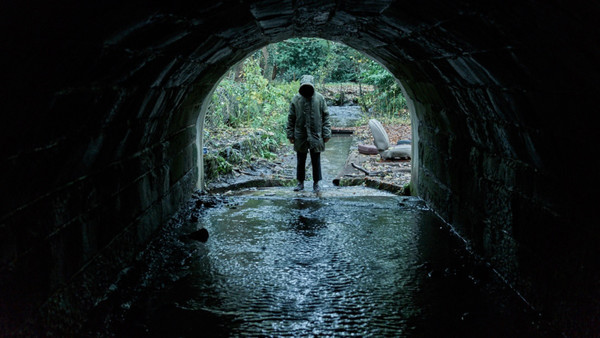Ghost Stories: Jeremy Dyson Interview - Magic, The Golden Age Of Horror & Unexpected Backlash

Josh Brown: So, obviously the film has been out for a few months now, it was in the can long before that and was a stage play even before then, how has your relationship with the project changed?
Jeremy Dyson: Well, it did evolve, the whole thing evolved and the interesting thing - the thing me and Andy [Nyman, the co-director] kept saying to each other - was that we were amazed how we never got bored of it, because you're sticking with the same story for seven or eight years. But the more we dug into it, the more interesting it became, and it was fascinating that one thing should hold your attention for so long because, you know, of all the work I've done I've never sat with anything over that length of time.
JB: Yeah, definitely. I suppose moving it from stage to cinema opened up a new realm of possibilities in that regard?
JD: Yeah, you know they're completely different things. The film version is a very different iteration to the stage, so in that sense it brought lots of new elements to it. But still, it is all under the umbrella of a ghost story, and there was so much to do to make it into a film. It was a completely different process, aside from working with the actors. So there was a lot of novelty.
JB: I think in the movie itself you get the DNA of that original incarnation, but it's also striking how it's so cinematic, and the visual storytelling is so impressive. Was there scope to embellish those finer story details when it came to making the film version?
JD: Yeah, well, I mean, again there was an element of visualisation on stage but our approach on stage was was very minimal, because we could only get a few things in, and our brilliant designer helped with that. It was all about darkness and floating things in the darkness, so there was very little action visually. In terms of what you're seeing it's very little, so when we came to building the world of the film we were completely starting from scratch, and one of the first things we did once we had the early version of the script was start putting a logbook together, which helps when you're putting finance together. And once we got that, I think we had an inkling of what the world was going to be, and we did a lot of work through the years that ended up feeding into the film and the production, you know, compiling references that demonstrated how we wanted it to feel. So a lot of work was put into creating those ghost stories.
JB: Yeah, I think you can see how much work you put into that movie. I know Andy has a history with magic and I hear you enjoy it too. How did that help you craft a movie like this which relishes playing with the audience?
JD: Well, there's a massive overlap with the world of magic and conjuring and the world of film, which I've always been interested in. The first branch of filmmaking I was interested in was special effects, precisely because it's a type of magic, really, and even the basics of filmmaking are like a magic trick. Editing, really, having three different cameras and editing it into one thing is a magic trick. And if you're interested in magic you're very aware of that. There's so many things in the fundamentals of conjuring, like misdirection and getting people to look one place while we're doing something else, that's all over just basic filmmaking. Even the most naturalistic Ken Loach film is a startling piece of magic, technically speaking. So, you know, the two worlds rise together and there have been lots of filmmakers historically fascinated with that world, particularly Orson Welles who staged magic acts. And anybody who's into magic gets that. So, the fact that me and Andy, because we wanted to do everything very practically, it was really useful because, along with having people like Darren Brown on set, we knew we wanted to do as much as we can in-camera, rather than doing CGI effects, so Andy's stage experience was very, very useful in achieving things without resorting to effects.
JB: It's interesting that you mention that the magic is in the editing, and filming from three different perspectives and finding that in the edit. Was much of this movie found in the edit, or was it more intricate?
JD: We didn't have time for that way of doing things because it was a very tight ship, and so we storyboarded everything. So we have, you know, a record of the basics, how many shots we're going to do so we can make those decisions in advance. But, you know, I think to be honest even if we had twice as much time we'd have still gone that way because we both really enjoyed the process of visualising it, and I couldn't imagine trying things without that prep. It would have been nice, but in our case it was the right way to go.
Next up, dealing with backlash, the state of modern horror and literary influences...